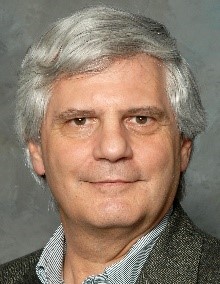
Dr. Richard G. Madonna received the B.S. in physics from Stevens Institute of Technology, Hoboken, NJ, the M.S. in physics from Adelphi University, Garden City, NY, the Ph.D. in physics from Stevens Institute of Technology, and the M.B.A. from Long Island University, Greenlawn, NY. His Ph.D. thesis was on estimating the strength of gravitational waves from slowly moving compact objects. Upon leaving graduate school, he served on active duty as Captain, USAF at the USAF Technical Applications Center where he conducted R&D in support of national security missions. Of note, he oversaw the development of a Space Shuttle mid-deck payload experiment which flew 10 times. After leaving the Air Force, he joined Grumman Aerospace Corporate Research Center, where he developed high power radio frequency sources and impulse radar transmitters. He became laboratory head for the Low Observable Material Research Laboratory and oversaw research on materials to reduce the electromagnetic signature of aircraft. During that time, he initiated and led the Remote Sensing program. In this program. Rich and his colleagues developed infrared hyperspectral imaging cameras and algorithms to exploit the hyperspectral data, as well as thermal modeling of various facilities, vehicles and activities for use in hyperspectral imagery exploitation. Rich transferred to Northrop Grumman’s Electronic Systems Sector (now called Mission Systems) in Baltimore Maryland where he served as System Architect on several space-based EO and IR sensing programs supporting defense and national security efforts. Among the programs he worked on were a classified effort using a swept pulse pair Doppler ladar, a direct detection imaging ladar later known as HALOE, and an inverse synthetic aperture ladar for space situational awareness. In 2015, Rich was named as Northrop Grumman’s System Architect for the NGC/Caltech Space Solar Power Initiative. He retired from NGC in 2017 and joined the Caltech Space Solar Power Project (SSPP) team as Project Manager in 2018. While he is responsible for systems engineering support to the long term goals for the program, he is also helping lead the development of two demonstration payloads to be hosted on small satellites with the goal of demonstrating key technologies unique to Caltech’s SSPP.
Dr. Madonna is the author of more than 40 papers and the author of one book, “Orbital Mechanics”. He has held adjunct faculty positions at Florida Institute of Technology in the Space Technology Program, Rollins College Department of Mathematics, Hofstra University Physics Department, Johns Hopkins Whiting School of Engineering Systems Engineering Department, and is currently an adjunct professor at University of Maryland Baltimore County Systems Engineering Program. He is a member of IEEE, SPIE, OSA, and Sigma Xi.
